Wellhealthorganic.com:11-health-benefits-and-side-effects-of-olives-benefits-of-olives. Olives are a food often used in cooking, especially in Mediterranean cooking. They are small and oval-shaped, and the center has a hard pit. Olives come in different colors, like black, green, and red, and they can be bought whole, sliced, or with the pit taken out. In this piece, we’ll talk about olives’ good and bad effects on your health. They come from the Mediterranean area and have been grown there for thousands of years.
What are olive fruits? Complete Overview
Olive trees produce olives called Olea europaea and grow in the Mediterranean. They have been grown for thousands of years, and older adults like the Greeks and Romans already knew how to use them. Olives are usually picked when green or black, but some types can be picked when they are red. They are often used in cooking, especially in Mediterranean food, and you can eat them raw or make oil from them.
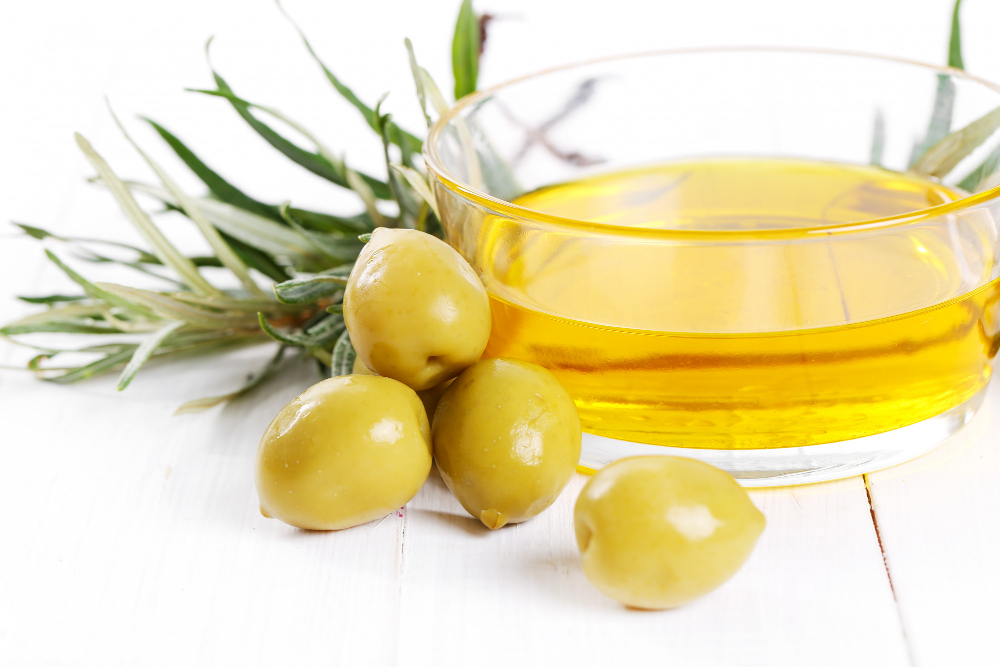
Health Benefits of Olives
- According to wellhealthorganic.com:11-health-benefits-and-side-effects-of-olives-benefits-of-olives, Olives help keep your heart healthy. Olives have monounsaturated fatty acids (MUFAs), which can lower your bad cholesterol (LDL) and raise your good cholesterol (HDL). MUFAs can also stop blood from clotting and reduce inflammation, lowering your risk of heart disease and stroke. Because of this, you should find ways to use olive oil in your daily life.
- Olives are good for the health of your face. Olives have a lot of vitamin E, a potent antioxidant that shields skin from the damage that free radicals can do. A report on www.wellhealthorganic.com called 11-health-benefits-and-side-effects-of-olives-benefits-of-olives says that vitamin E can also keep your skin moist, make it more flexible, and lower the signs of aging.
- Olives are good for your eyes. Olives have two carotenoids, lutein, and zeaxanthin, blocking UV and blue light. These pigments can also stop common eye diseases that make it hard to see, like macular degeneration and cataracts.
- Olives are good for your immune system. Olives have polyphenols, plant chemicals that reduce inflammation and kill bacteria. Polyphenols can change how your immune system works and help you fight off infections by preventing harmful bacteria and viruses from growing.
- Olives are good for the health of your brain. Olives have oleic acid, a type of MUFA that can get into the brain and feed the cells there. Oleic acid can also help your memory, learning, and brain function by making it easier for neurons to talk to each other.
Nutritional Value of Olives
Olives contain healthy fats, fiber, and many vitamins and minerals. In 100 grams of olives, there are:
- Calories: 115
- Fat: 10.7 grams
- Protein: 0.8 grams
- Carbohydrates: 6.3 grams
- Fiber: 3.2 grams
- Vitamin E: 3.8 mg
- Iron: 0.5 mg
- Calcium: 52 mg
- Sodium: 1,126 mg
- Potassium: 42 mg
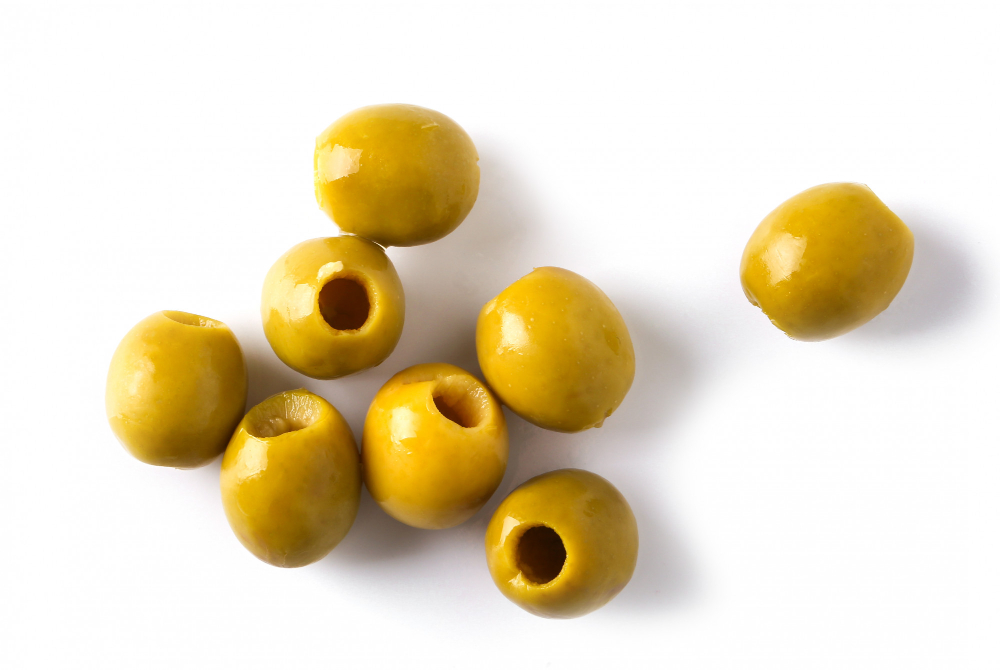
Side Effects of Olives
- Some people are allergic to olives. Some people might be allergic to olives or something in them, like pollen or oil. This can lead to itching, swelling, hives, rashes, or a serious allergic reaction called anaphylaxis, which can be life-threatening.
- Olives might make your stomach feel bad. Some people may get gut pain or diarrhea after eating olives, especially if they eat too many or are not used to them. This could be because olives have a lot of fat, fiber, or compounds that irritate the digestive system.
Do you Know the Benefits of (Olive Oil)Jaitun Oil?
wellhealthorganic.com:11-health-benefits-and-side-effects-of-olives-benefits-of-olives. Olive oil, which in Hindi is called Jaitun Oil, is a flexible oil that can be used for many different things. It comes from the fruit of the olive tree, which grows in the Mediterranean. Olive oil is healthy for your hair, skin, and nails and can cook and dress meals. Here are a few good reasons to use Jaitun Oil:
- Olive oil keeps the skin wet and fights the signs of aging. It also has vitamin E and antioxidants, which prevent free radical skin damage and make it more flexible. Olive oil can also help heal dry, cracked skin, especially on the lips, feet, and cuticles.
- Olive oil prevents acne. Its anti-inflammatory and antibacterial properties prevent skin infections and swelling. Olive oil controls oil production and prevents clogged pores.
- Olive oil makes hair shiny and healthy by feeding hair follicles and strengthening hair shafts. Olive oil also stops hair from falling out, getting dandruff, and splitting at the ends. It can smooth and moisturize the hair as a natural conditioner or mask. It dissolves dirt, oil, and makeup leftovers without removing the skin’s natural moisture.
(Olive Oil)Jaitun Oil for Immunity Boost
Wellhealthorganic.com:11-health-benefits-and-side-effects-of-olives-benefits-of-olives. It makes you less likely to get cancer and boosts your immune system. It also has omega-3 fatty acids and flavonoids, which help control the immune system and fight inflammation. Olive oil also stops cancer cells from growing and helps prevent stomach and bowel cancer. WellHealthOrganic.com11-health-benefits-and-side-effects-of-olives-benefits-of-Olives can naturally enhance your beauty in various ways. It comes in several forms, such as “extra virgin,” “virgin,” “pure,” “refined,” and “pomace,” depending on the olives’ quality and processing. Extra fresh olive oil is the healthiest and most antioxidant-rich. Olive oil lasts two years in a cold, dark environment.

Do Black Olives Have the Same Nutritional Benefits as Green Olives?
Black olives are a healthy food that is tasty and good for you. Here are some reasons why black olives should be part of your diet:
- Monounsaturated fats in black olives can help lower bad cholesterol and keep your heart healthy.
- Black olives have a lot of vitamin E, an antioxidant that keeps your cells from getting damaged and inflamed. Vitamin E also helps keep your skin from getting old and stops cancer from growing.
- Black olives have fiber, which helps your body digest food, lowers your blood pressure, and keeps you full longer. Black olives have iron.
- Black olives can help lessen the symptoms of arthritis, asthma, and other long-term conditions that cause inflammation.
- You can eat black olives as a snack, add them to salads, sandwiches, pizzas, or pasta meals, or blend them with garlic, lemon juice, and olive oil to make a tasty tapenade.
- Black olives from WellHealthOrganic.com:11-health-benefits-and-side-effects-of-olives-benefits-of-Olives are flavorful and versatile, making them easy to add to recipes. But remember that canned or bottled black olives have a lot of sodium, so rinse them before eating to cut down on salt.
Olives and Weight loss
Wellhealthorganic.com:11-health-benefits-and-side-effects-of-olives-benefits-of-olives. Olives are a tasty and healthy food that helps lose weight because they are low in calories and have healthy fats. They also have a lot of vitamins, which may keep your cells from getting hurt or inflamed. But olives are also high in salt and calories, so you should eat them in moderation and choose the kind that fits your tastes and goals. For example, black olives made in the Greek style have more phenols than green olives or olives made in the California style, but they also have more salt. Eat olives as a snack or add them to salads, pizzas, pasta dishes, or sandwiches to add taste and health benefits.
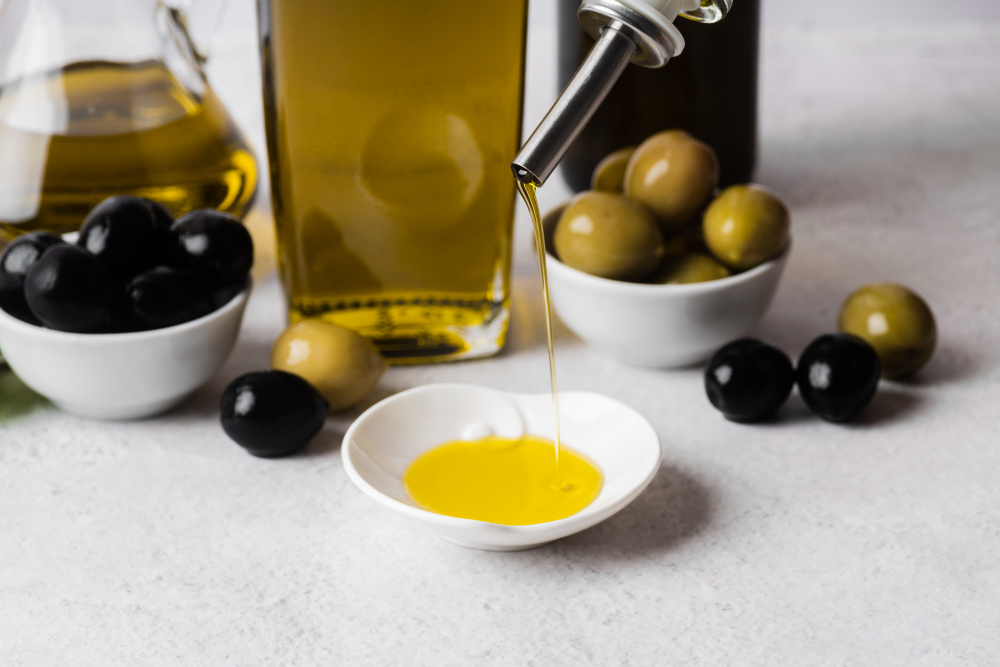
Uses of Olive as “Smart Drugs”
Wellhealthorganic.com writes: Some people use olives as a natural nootropic, or smart drug, to improve their cognitive ability and protect their brain from aging and stress.
- Olive oil comes from the fruit and has plenty of monounsaturated fatty acids that decrease cholesterol, heart disease, and stroke risk. Olive oil also has antioxidants like vitamin E and flavonoids that can protect brain cells from damage caused by free radicals and inflammation. Some studies show that olive oil may help people, especially older adults, remember things and think more clearly.
- Olive leaf, often taken as a supplement, has antibacterial, antifungal, and antiviral qualities that can help fight infections and boost the immune system. Olive leaves also have oleuropein, which can help lower blood pressure and relax blood vessels. Some tests on animals have shown that they protect the brain and can stop cognitive decline and Alzheimer’s.
- Olive seeds are a good source of fiber, protein, and minerals like calcium, magnesium, and iron. Olive seeds also have anti-inflammatory and antioxidant effects that are good for the brain and the body as a whole.
Wellhealthorganic.com:11-health-benefits-and-side-effects-of-olives-benefits-of-olives. Olive is usually safe to eat or take as a supplement, but some drugs, like blood thinners, diabetes drugs, or blood pressure drugs, may not work well. So, if you want to use olive as a smart drug, you should talk to a doctor first.
How is Vitamin E related to olive Oil?
Vitamin E aids the body to protect cells from free radicals. Helps too your face, eyes, immune system, and ability to have children. Olive oil is one of the food sources of vitamin E, according to wellhealthorganic.com:11-health-benefits-and-side-effects-of-olives-benefits-of-olives. Olive oil contains alpha-tocopherol, the body’s most active form of vitamin E. One tablespoon of olive oil provides 10% of an adult’s daily vitamin E, 15 milligrams. Vitamin K, omega-3, and omega-6 are also in olive oil. Olive oil is heavy in fat and calories, so use it sparingly in a healthy diet. Vitamin E also keeps olive oil from going bad, which makes it last longer and keeps its quality.
Olive oil and Lemon oil: what’s the connection?
Lemon and olive oil are natural items that have many uses in cooking and health. Citrus peels and lemon make lemon oil with vitamin C, flavonoids, and antioxidants. Lemon and olive oils be mixed or used separately. olive oil produces a marinade, sauce, or dressing for salads, pasta, fish, and vegetables.
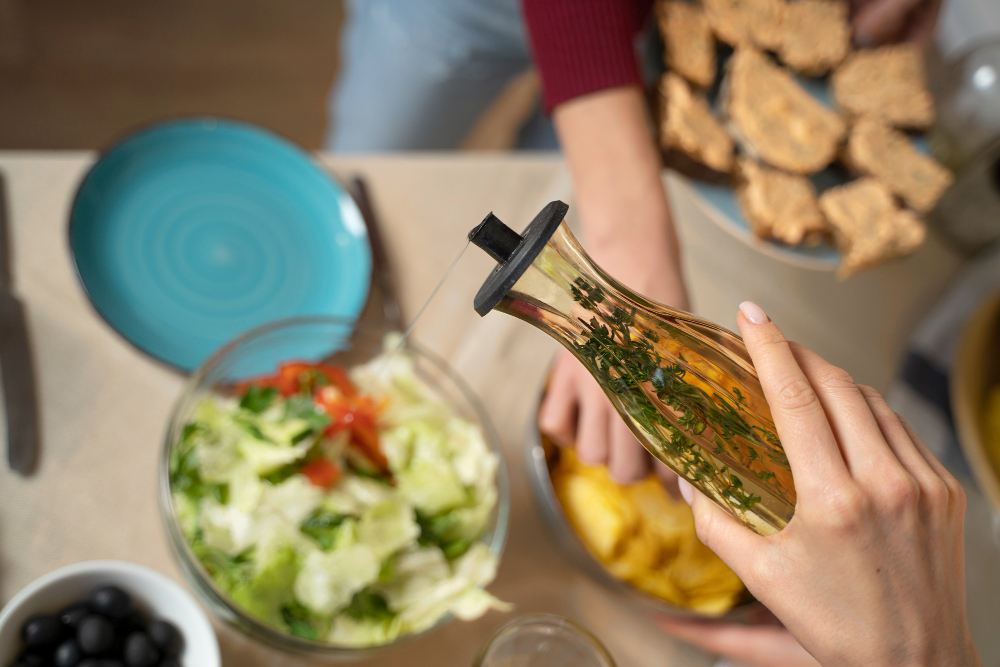
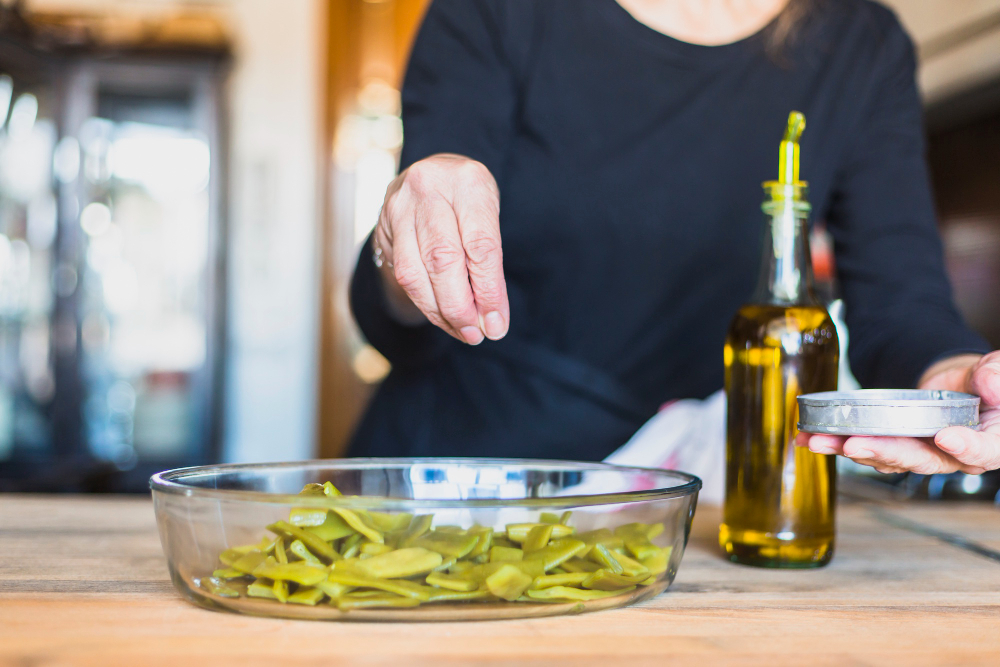
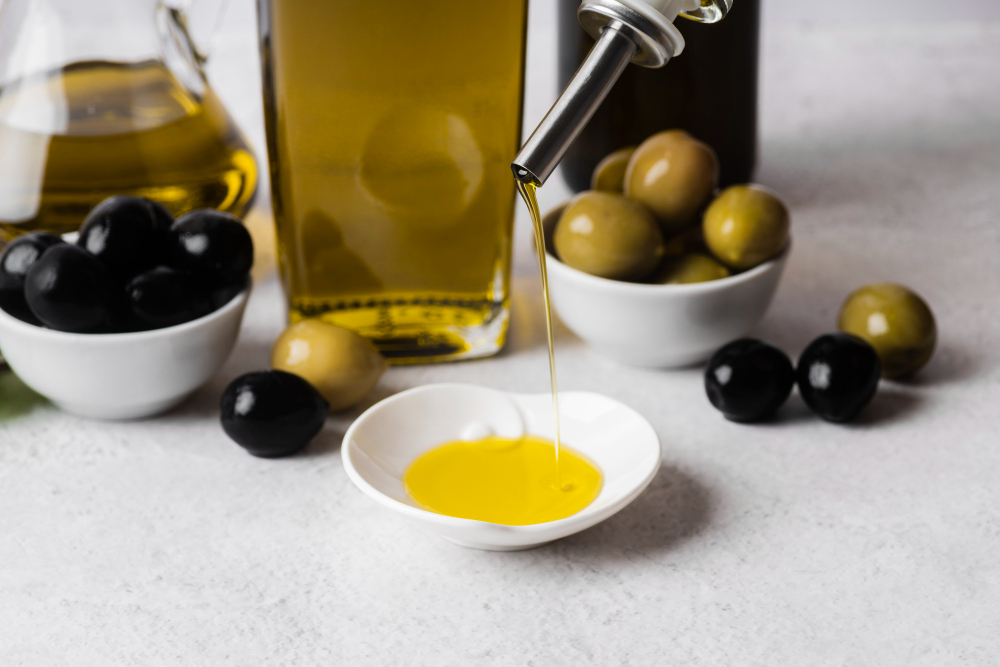
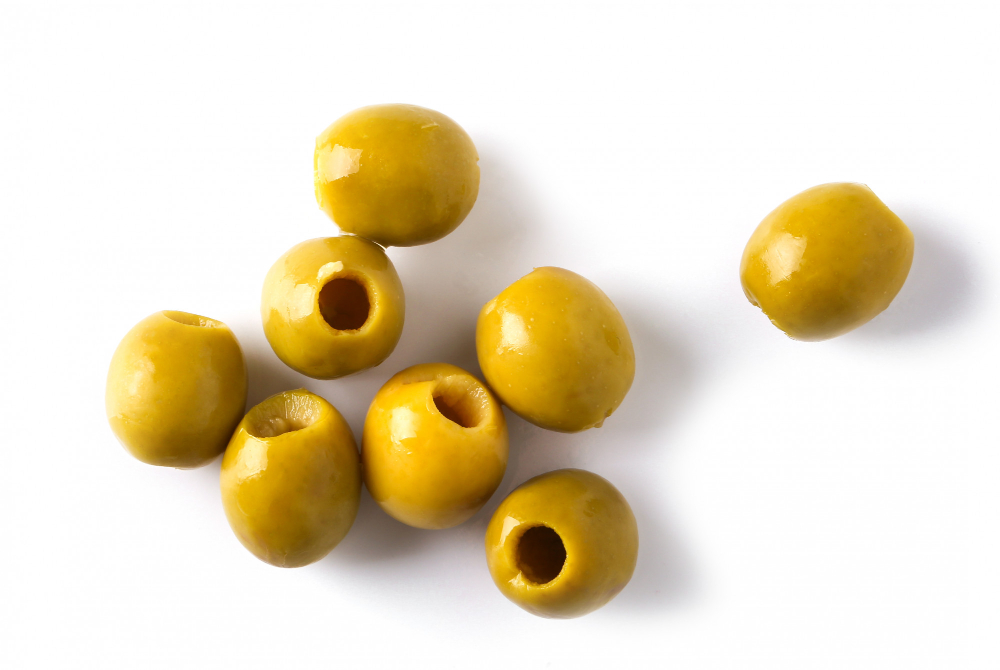
FAQs
Q: WellHealthOrganic.com is what?
A: WellHealthOrganic.com is an online platform that offers knowledge and products about health and wellness, such as organic products and natural remedies.
Q: What good things do olives do for your body?
A: Olives are good for your health in many ways, like being a good source of healthy fats and vitamins. They also help keep your heart healthy and aid weight loss, intestinal health, and inflammation.
Q: Are olives good for helping you lose weight?
A: Yes, olives can help you keep your weight down. They have monounsaturated fats that fill you up and prevent overeating. Also, they have few calories, which makes them a good snack.
Q: How do olives help the health of your heart?
A: Olives are full of polyunsaturated fats, which can help lower bad cholesterol levels and the risk of heart disease. They also have antioxidants called polyphenols that protect the heart from toxic stress.
Q: Can olives help the health of your gut?
A: Yes, olives can help with digestion. Olives have a lot of fiber, which helps keep your bowels moving and keeps you from getting constipated. They also help make stomach enzymes, which help the body break down food.
Conclusion
Wellhealthorganic.com:11-health-benefits-and-side-effects-of-olives-benefits-of-olives. Olives are a healthy food that is good for you in many ways. They have healthy fats, fiber, and many vitamins and minerals. They may help lower cholesterol, prevent cancer, reduce inflammation, improve bone health, boost the immune system, prevent heart disease, control blood sugar, improve digestion, relieve constipation, and lower the risk of depression. But they can also cause side effects like allergic responses, stomachaches, and problems absorbing iron. Like any meal, Olives should be eaten in moderation and discussed with a doctor if you have concerns.